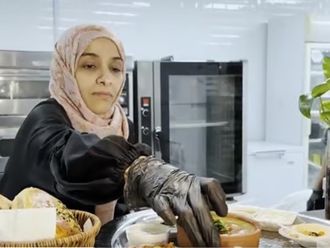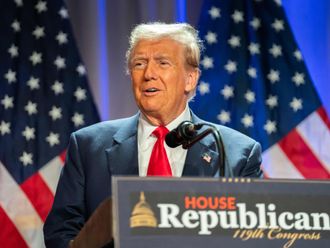
Riyadh: Saudi Arabia’s push to encourage its society to exercise moderation in its approach to religion and intellectual matters has met with success, a symposium has heard.
Inaugurating a two-day symposium on the "Saudi Moderate Approach" at King Abdul Aziz University (KAAU) in Jeddah on Sunday evening, Second Deputy Premier and Interior Minister Prince Naif Ibn Abdul Aziz said moderation was the pillar for the political, economic and cultural values of Saudi society.
Saudi Arabia has been intensifying its efforts to instill the "principle of moderate religious and intellectual approach" since it first experienced terrorist attacks about 17 years ago and following the September 11 attacks in Washington and New York.
The Kingdom said its moderation campaign, delivered through a number of intellectual, academic, educational and cultural paths, had yielded some success, especially among fanatic scholars and in the Saudi society in general.
Second Deputy Premier and Interior Minister Prince Naif Ibn Abdul Aziz said: "It (moderation) is an Islamic pattern emanating from the Sharia and is far away from the style of extremism and terrorism which came to us from outside and was adopted by some Saudis".
“Moderation, which is being advocated by our Islamic Sharia, curbs the damages of terrorism," he said addressing university staff, academics, and students at the symposium. The event was organised by the Chair of Instilling the Values of Moderation established at the university by Makkah Governor Prince Khalid Al Faisal.
“You are responsible for teaching our sons and daughters the values of tolerance," Prince Naif said to the university teachers. He also asked students to adhere strongly to the Islamic values which would protecting them against going astray.
Prince Naif recalled that a number of research and scholarly chairs were established in various Saudi universities to conduct scientific studies on how to find solutions to the problems facing the Saudi society including religious extremism.
He said his country had foiled 230 out of 240 terrorist attempts and added that those who committed the 10 other terrorist acts were currently being tried before Sharia courts.
Rector of KAAU, Dr Osama Tayyeb said Prince Kahlid Al Faisal's Chair to instill the Saudi moderate approach was a pioneering method for encouraging moderation, and discouraging fanaticism and terrorism.
Meanwhile, Local Arabic daily Al-Watan Monday said a book titled " Fiqh and Conduct" being taught to first year elementary students was teaching the students that the "salam" - the Islamic way of greeting - should only be said to Muslims.
It said a number of Saudi education experts had criticised the book saying that it incited racism against non-Muslims which was totally against the moderation of Islam. "This will destroy the minds of the young students and make them hostile to anything which is not Islamic," one said.
Former education minister Dr Abdullah Al Obaid, in statements published in July 5, 2008 strongly criticised some school courses in Saudi Arabia and said they had helped create a number of terrorists.
Over the past few years, the Kingdom had changed its school courses a number of times in an attempt to fight extremism. The country's Grand Mufti Shaikh Abdul Aziz Al Shaikh and Minister of Islamic Affairs had led successful campaigns against extremism.










